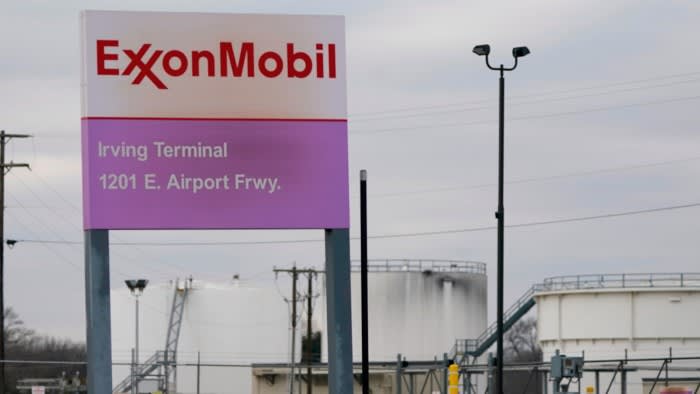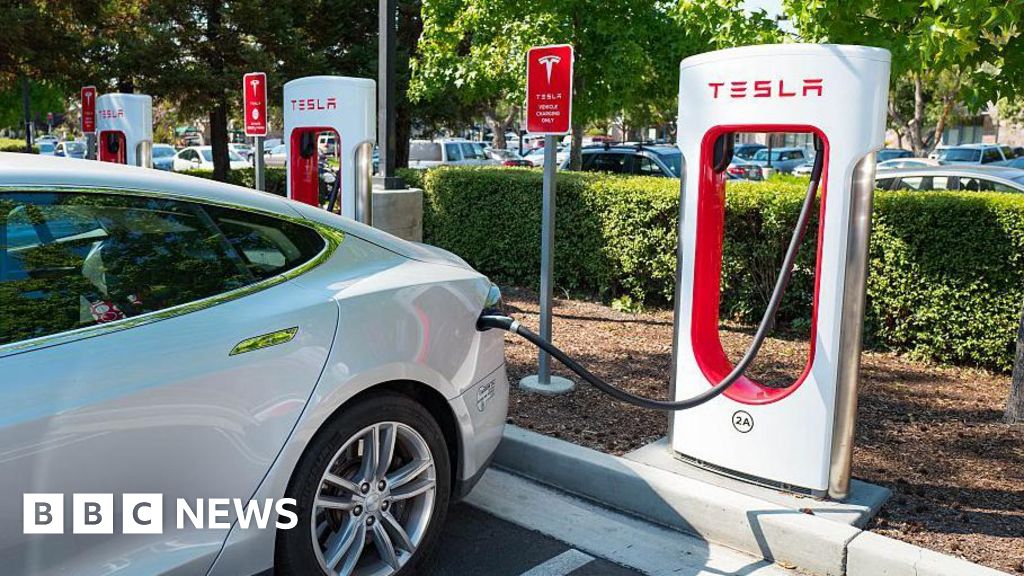Unlock the Editor’s Digest for free
Roula Khalaf, Editor of the FT, selects her favourite stories in this weekly newsletter.
ExxonMobil and Chevron reported double-digit falls in first-quarter profits on Friday in a sign that two years of bumper earnings driven by Russia’s full-scale invasion of Ukraine in 2022 may be coming to an end.
The two US oil majors have cashed in on soaring energy prices linked to the war in Ukraine by returning tens of billions of dollars to shareholders and announcing large acquisitions designed to propel their future growth. But sharp falls in natural gas prices and reduced oil refinery margins dented their earnings in the first three months of the year, causing both companies’ shares to dip in pre-market trading.
“Crude, cracks, global gas are down from record levels a couple years ago, so fair to assume record earnings may not continue,” said Jason Gabelman, analyst at TD Cowen, an investment bank.
Exxon reported first-quarter net profit of $8.2bn, which was down 28 per cent from $11.4bn on the same period last year due to lower gas prices and refining margins. It posted earnings per share of $2.06, which were below consensus expectations of $2.19, according to FactSet.
Chevron reported net income of $5.5bn in the first quarter, down 16 per cent from the same period last year. Adjusted earnings of $2.93 per share were above analyst expectations of $2.90.
Kathryn Mikells, ExxonMobil’s chief financial officer, blamed a series of non-cash items mainly linked to tax, inventory and balance sheet adjustments and divestments for its earnings miss. She said Exxon’s business was performing well, noting that cash flow from operating activities of $14.7bn was about $1bn above consensus.
Mikells said Exxon’s offshore operations in Guyana — the South American country that is key to its growth plans — produced a record 600,000 barrels of oil equivalent per day.
Exxon is embroiled in an arbitration dispute with its US rival Chevron, which is attempting to gain a foothold in the fast-growing Guyana operation by acquiring one of Exxon’s partners, Hess, for $53bn.
Chevron’s proposed deal would hand it control of 30 per cent of the Stabroek Block, one of the largest offshore oil discoveries in decades. Exxon owns 45 per cent of the oil block off Guyana’s coast.
Mikells reiterated Exxon’s belief that it had a pre-emption right to Hess’s Guyana asset. “It’s about confirming our rights . . . and establishing the value associated with the transaction for Guyana,” she said.
Mikells said the US oil major was watching the “pretty troubling” geopolitical events in the Middle East and Russia closely as the company reported first-quarter profits that were below Wall Street expectations.
She said Exxon’s operations had not been disrupted by the escalating tensions in the Middle East, including retaliatory strikes between Israel and Iran, but it continues to monitor threats.
“The recent geopolitical events are pretty troubling. It’s a situation that we watch very closely. Obviously, geopolitical events can have an impact on the business,” she said in an interview.
Mikells said Exxon was focused on “ensuring the safety of our people” but stressed that its operations had not been subject to major disruptions.
Exxon’s shares were about 2 per cent lower in pre-market trading, while Chevron fell 0.1 per cent.
Credit: Source link











